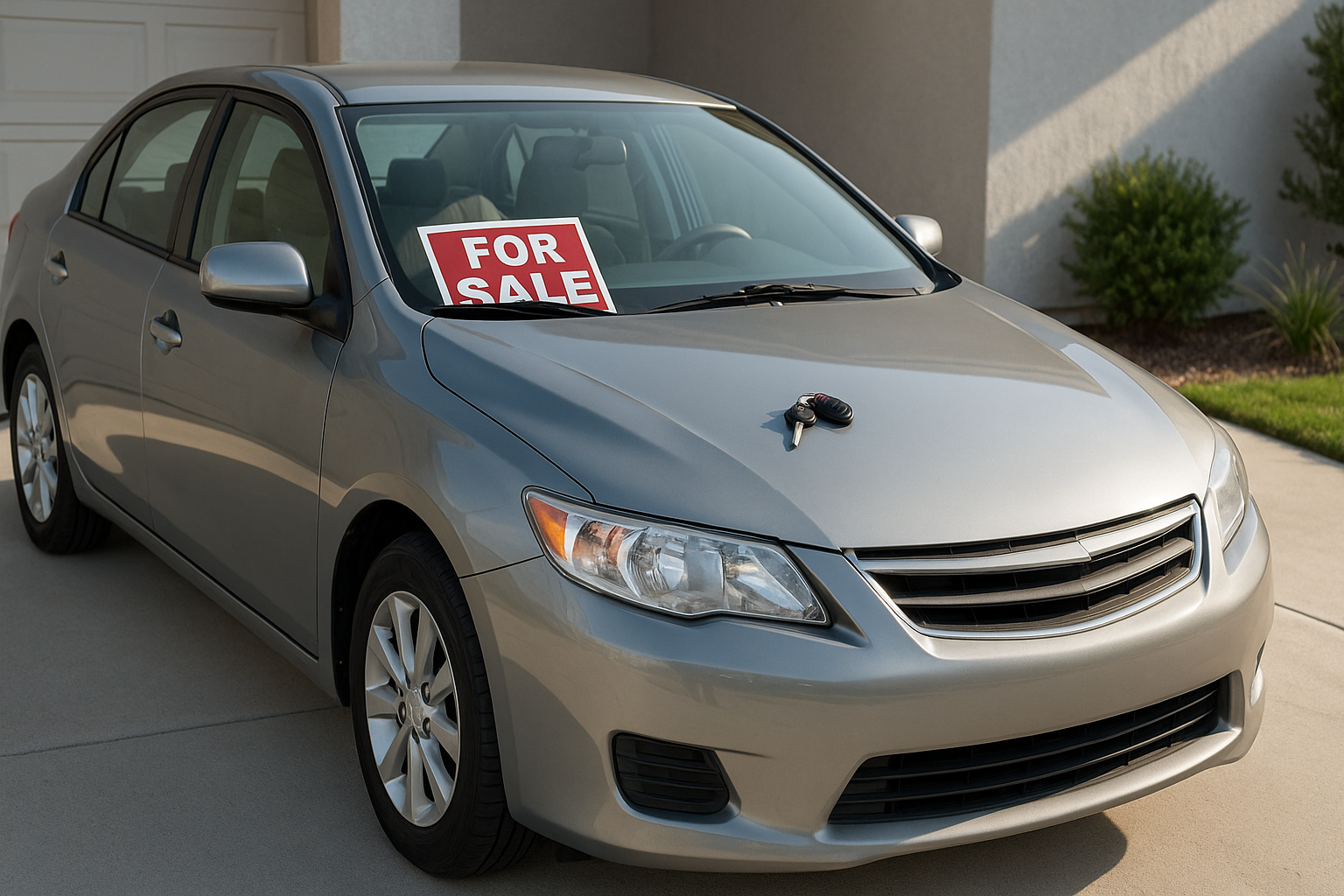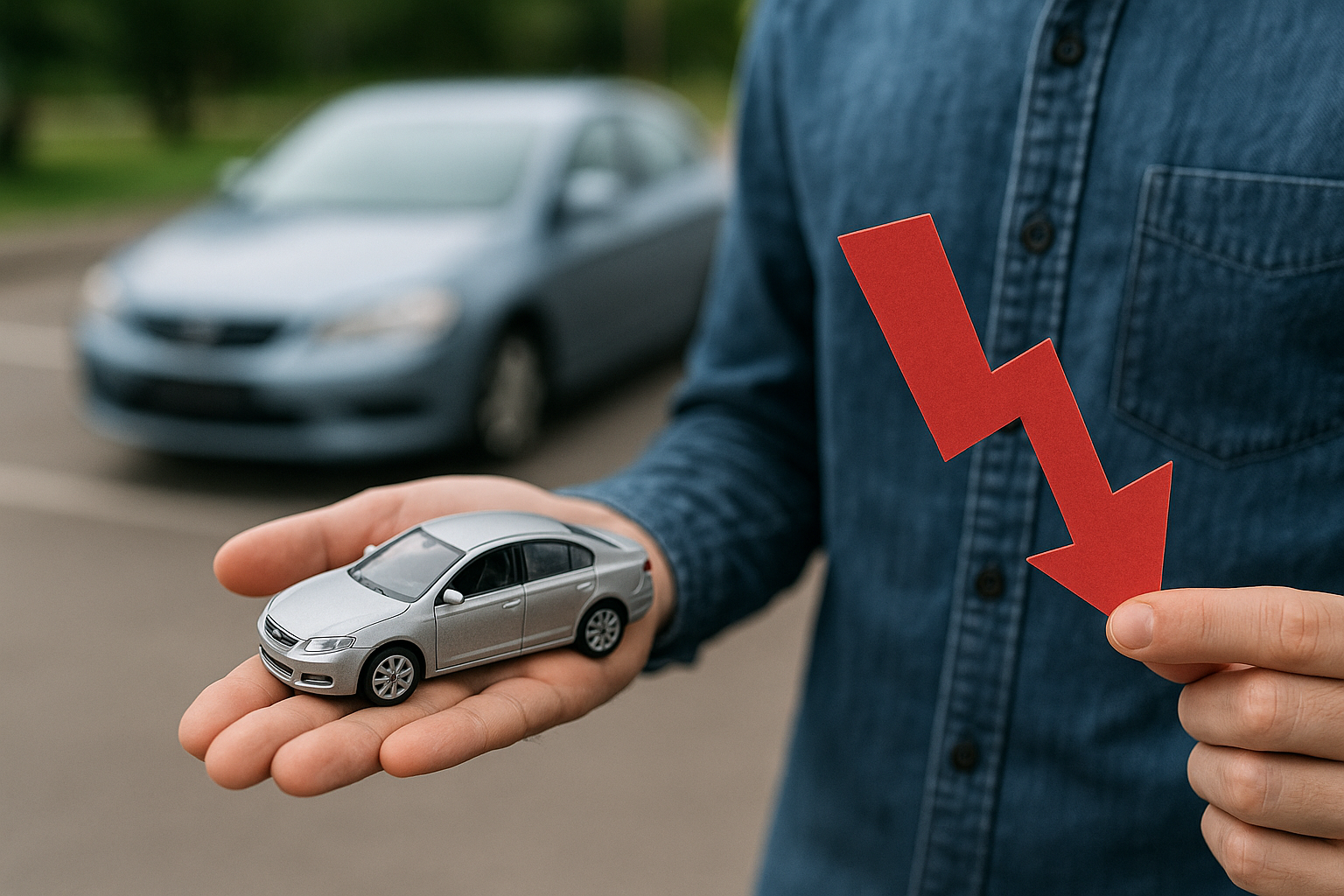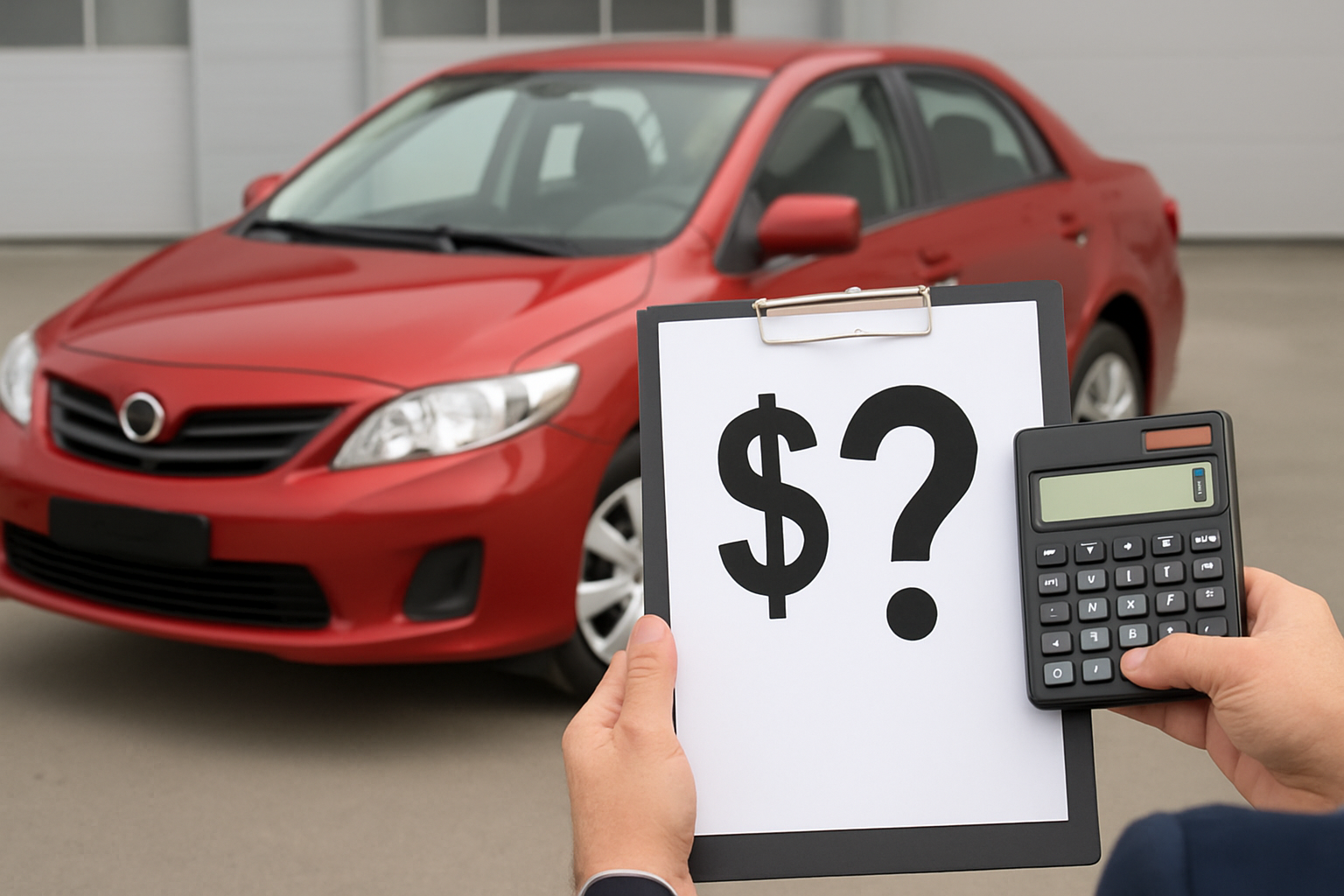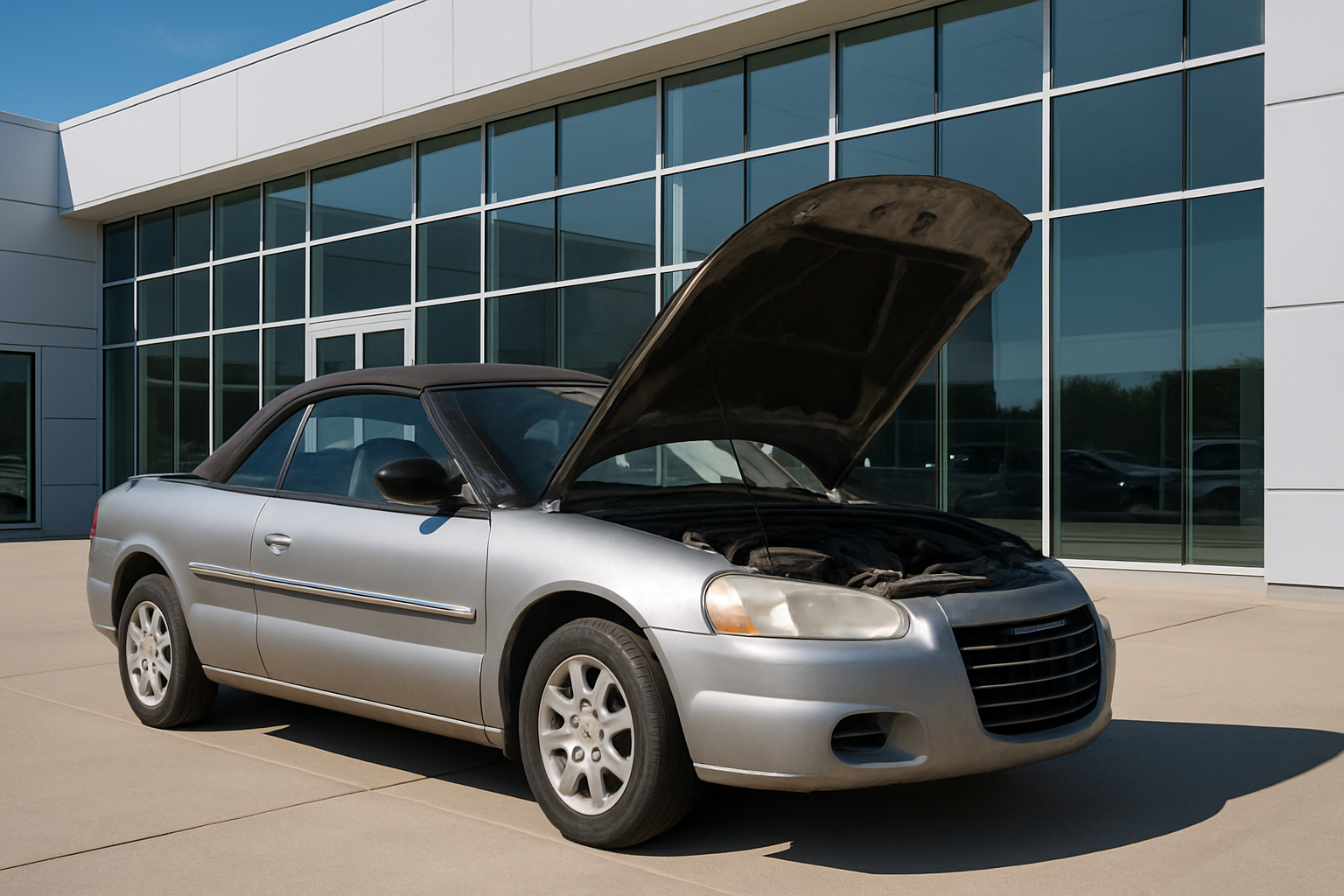Selling a car with an outstanding loan requires careful navigation through a series of financial and legal steps. This guide will outline the essentials of how to transfer your car to a new owner while a loan is still in place. Whether you have positive or negative equity in your car, we'll cover the best strategies to manage your loan balance and ensure a smooth transaction. Additionally, it's vital to explore options that could bring a higher return from the sale, potentially offering more financial flexibility. Engaging with lenders about auto loans early on, understanding your current vehicle's market value, and preparing for a few extra steps due to the existing loan can streamline the process. Keeping an eye on interest rates and market trends can also influence the timing of your sale to maximize returns.
Understanding Your Car's Market Value

Knowing what your car is worth is the first step in selling it. This value is crucial because it affects whether you're dealing with positive equity (the car is worth more than the amount you owe) or negative equity (you owe more than the car's value). Use reputable online tools to estimate your car's market value, comparing it with the remaining loan balance to understand your financial state. To sell your car successfully, especially a financed vehicle, you'll want to aim for a sale price that not only covers the entire loan balance but potentially provides more money to put towards your next vehicle. This approach requires a keen understanding of the market and the ability to negotiate effectively to achieve a purchase price that benefits your financial situation. Remember, the goal is to clear what you owe money on and possibly secure funds for a down payment on a new or used vehicle, making the transition smoother and financially viable.
Learning Your Payoff Amount
The loan payoff amount is the total you'll need to pay to clear your loan, which can be different from your remaining balance due to interest and other fees. Contact your lender to get the exact payoff amount. This figure is essential for planning your sale and determining whether you're facing positive or negative equity. As you navigate through the process of preparing to sell a car, understanding the impact of the interest rate on your auto loan becomes crucial. It influences the final amount you need to settle before you can proceed with the car sale. Engaging with your lender not only clarifies your current financial standing but also ensures you're aware of any additional fees that might affect the payoff amount. Furthermore, completing this step is vital for facilitating the transfer of the car title to the new owner, who will need to undertake new registration procedures. This thorough preparation paves the way for acquiring your next car, as it helps you assess the feasibility of taking on a new auto loan with a clear perspective of your financial health post-sale.
Contacting Your Lender
Engage with your lender early in the process. If you financed through a bank or credit union, visit a local branch or call their customer service. They can provide detailed instructions on managing the sale, transferring the title once the loan is paid off, and whether there are any prepayment penalties. It's crucial because the lender requires a clear procedure to be followed for the car title to be released. When you're ready to pay off your loan, ask about any prepayment penalty, as some agreements, particularly those with an online lender or a local bank, might include these fees. Additionally, coordinating with your state's Department of Motor Vehicles (DMV) is necessary for the official transfer of the car title to the new owner. The DMV will often require evidence that the entire loan balance has been settled. This coordination ensures that all legal and financial obligations are met, facilitating a smooth transition of ownership without any lingering complications.
Selling with Negative Equity
Negative equity means you owe more on the loan than the car is worth. Selling a car in this situation might require you to pay the difference between the sale price and the loan payoff amount. Options include using savings, obtaining an unsecured personal loan, or rolling over the balance into a new loan, though this could lead to more debt. When considering a private sale, it's crucial to aim for the highest possible sale price to minimize the financial shortfall. This extra effort can be worthwhile, especially if it helps avoid extending the negative equity into the financing of a new car. After the sale, coordinating with the lender to ensure the loan is settled and the car title is correctly signed over to the new owner is essential. Successfully navigating this process not only clears your debt but also potentially sets the stage for more manageable monthly payments on your next vehicle, aligning your financial obligations with your budget. This careful management can make transitioning to a new car smoother, despite the initial challenges posed by negative equity.
Selling with Positive Equity
If you have positive equity, selling your car can be simpler. The sale proceeds can pay off the loan, with any excess being your profit. This scenario is ideal for sellers, as it provides funds towards the purchase of a new car or other financial goals. Opting for a private party sale could expand this advantage, appealing to buyers seeking a transaction outside the dealership environment, which might result in a better return on your current vehicle. Ensuring all documentation is in order, such as sharing the vehicle identification number (VIN) for potential buyers to run history checks, is crucial. Once the deal is finalized, having the title transferred to the new owner is a critical step, with procedures varying by state. For those with good credit, leveraging the sale could also mean negotiating lower interest rates for their next vehicle, potentially including an extended warranty for added reassurance. This strategy not only secures a financial benefit from the sale but also positions you favorably for your upcoming vehicle purchase, ensuring a seamless transition from your current vehicle to the next.
Selling to a Private Party or a Dealer

Deciding between a private sale and selling to a dealer depends on your preference for convenience versus potential profit. Selling privately often yields a higher sale price but requires more effort. Selling to a dealer is quicker but might result in a lower offer. Evaluate your current situation, considering the payoff amount and your equity status, to choose the best route.
When you opt to sell privately, the process involves direct negotiation with a potential private buyer, allowing for more control over the final sale price. This route can maximize your return, especially if your car is in high demand. However, it's important to prepare for the intricacies involved, such as advertising the car, arranging viewings, and negotiating with interested parties. On the other hand, selling to a car dealer simplifies the process of transfer ownership but may not fetch the same financial return. The dealer handles the paperwork and pays off the auto loan directly if applicable, offering a seamless but potentially less lucrative transaction. Regardless of the path chosen to sell a car, understanding the balance of effort, time, and potential profit is key to a successful sale.
Trading in a Car with a Loan
Trading in your car is another option, especially if you're planning to buy a new vehicle. Dealers can roll the remaining loan balance into your new auto loan if you have negative equity. For those with positive equity, the trade-in value can serve as a down payment on your next car. This approach simplifies the transition between vehicles, allowing you to seamlessly move from your current car to a new one without the hassle of a private sale. Dealerships handle the paperwork and payoff process, making it a convenient choice for many. However, it's important to carefully evaluate the trade-in offer to ensure it reflects the true value of your car. By doing so, you can maximize the benefits of your positive equity or minimize the impact of negative equity on your financial situation. Additionally, this strategy can lead to more favorable financing terms on your new auto loan, potentially offering lower interest rates or reduced monthly payments, making your next car more affordable in the long run.
Selling a car with a loan involves several steps, from understanding your car's value and your loan payoff amount to dealing with the lender and managing positive or negative equity. Whether selling privately, to a dealer, or trading in, the goal is to clear your existing loan while securing the best financial outcome.
Tips and Q&A
-
Can I Add Someone to My Car Loan without Refinancing?
Adding someone to your car loan typically requires refinancing into a new loan that includes both parties. Lenders often see this as a new loan application, subject to approval and potentially different terms.
-
How Fast Can You Sell a Financed Car?
You can sell a financed car as soon as you find a buyer and arrange to pay off the existing loan. The process speed depends on coordinating with your lender and managing the payoff process.
-
Does Trading in a Financed Car Hurt Your Credit?
Trading in a financed car doesn’t directly hurt your credit. However, taking on a new loan with a higher balance can impact your debt-to-income ratio and credit utilization, potentially affecting your credit score. Always consider how the new loan terms align with your financial situation.






